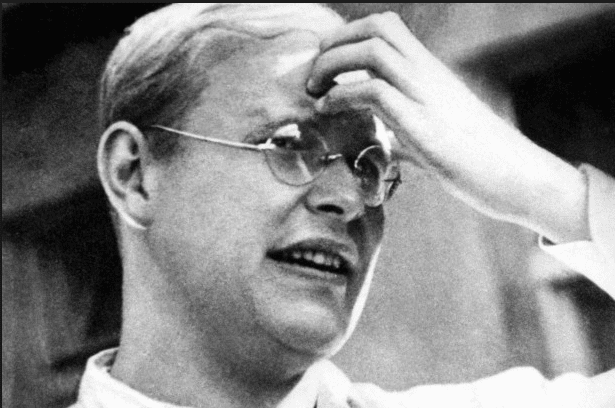Which of these statements by Bonhoeffer about costly vs. cheap grace is your favorite?
Dietrich Bonhoeffer, Discipleship (DBWE 4).
#1: Cheap grace means grace as doctrine, as principle, as system. It means forgiveness of sins as a general truth; it means God’s love as merely a Christian idea of God. Those who affirm it have already had their sins forgiven. The church that teaches this doctrine of grace thereby confers such grace upon itself. The world finds in this church a cheap cover-up for its sins, for which it shows no remorse and from which it has even less desire to be set free. Cheap grace is, thus, denial of God’s living word, denial of the incarnation of the word of God (43).
#2: Cheap grace is preaching forgiveness without repentance; it is baptism without the discipline of community; it is the Lord’s Supper without confession of sin; it is absolution without personal confession. Cheap grace is grace without discipleship, grace without the cross, grace without the living, incarnate Jesus Christ (44).
#3: Costly grace is the gospel which must be sought again and again, the gift which has to be asked for, the door at which one has to knock.
It is costly, because it calls to discipleship; it is grace because it calls us to follow Jesus Christ. It is costly, because it costs people their lives; it is grace, because it thereby makes them live. It is costly, because it condemns sin; it is grace, because it justifies the sinner. Above all, grace is costly, because it was costly to God, because it costs God the life of God’s Son—“you were bought with a price”—and because nothing can be cheap to us which is costly to God (45).
#4: A Christian’s secular vocation receives new recognition from the gospel only to the extent that it is carried on while following Jesus (49).
#5: The justification of the sinner in the world became the justification of sin and the world. Without discipleship, costly grace would become cheap grace (50).
#6: If grace is the “result” given by Christ himself to Christian life, then this life is not for one moment excused from discipleship. But if grace is a principled presupposition of my Christian life, then in advance I have justification of whatever sins I commit in my life in the world. I can now sin on the basis of this grace; the world is in principle justified by grace. I can thus remain as before in my bourgeois-secular existence. Everything remains as before, and I can be sure that God’s grace takes care of me. The whole world has become “Christian” under this grace, but Christianity has become the world under this grace as never before (50).
#7: Grace as presupposition is grace at its cheapest; grace as a conclusion is costly grace (51).
#8: Only those who in following Christ leave everything they have can stand and say that they are justified solely by grace. They recognize the call to discipleship itself as grace and grace as that call. But those who want to use this grace to excuse themselves from discipleship are deceiving themselves (51).
#9: The word of cheap grace has ruined more Christians than any commandment about works (55).
This entire discussion about cheap grace vs. costly grace emerges from Bonhoeffer’s context: (1) of a church that had lost its witness and was beginning to capitulate to Hitler’s forces; (2) a theology of grace among Lutherans that offered forgiveness but wasn’t taught to transform or create obedience; and (3) an attempt to prove that Martin Luther’s own theology was a theology of costly grace. As such, the book is a powerful intra-Lutheran exposition of grace that transforms.









